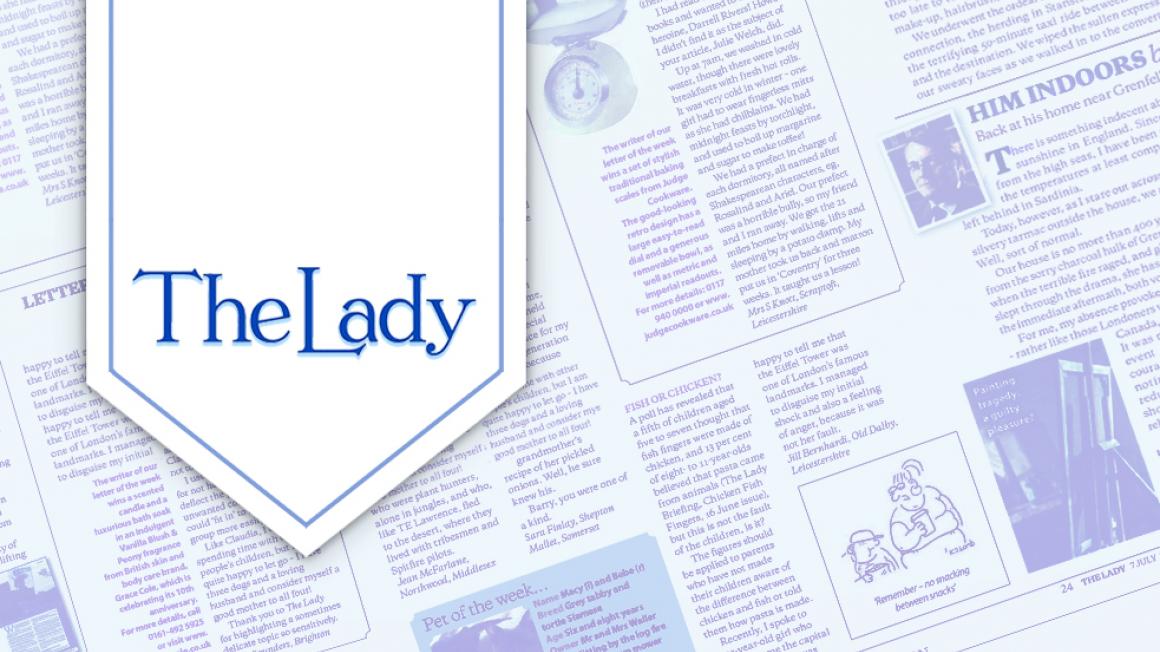Book Reviews: 3 March
OUT NOW
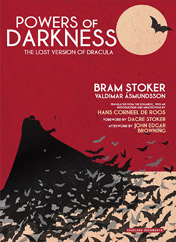 POWERS OF DARKNESS: The Lost Version Of Dracula by Valdimar Ásmundsson (Duckworth Overlook, £20)
POWERS OF DARKNESS: The Lost Version Of Dracula by Valdimar Ásmundsson (Duckworth Overlook, £20) From the perspective of a reviewer and a researcher, it’s difficult to overstate the significance of this remarkable literary discovery – but general readers and fans of the horror genre will also enjoy its gripping narrative and darkly intriguing pedigree. Powers Of Darkness was first published in 1901 (as Makt Myrkranna, in its original Icelandic) and was thought to be a translation of Bram Stoker’s Dracula. It remained unknown outside Iceland until 1986, when academics discovered that stoker himself had written its preface. In 2014, researcher Hans de Roos delved further into Ásmundsson’s work and realised it was not a translation of the vampire classic but a new version. As the accompanying essays reveal, this makes for a novel that is ‘shorter, punchier, more erotic, and perhaps even more suspenseful’ than the original.
It is presented here, in de Roos’s English translation, in a majestic hardback edition with a selection of accompanying notes and essays, situating the text in its wider historical and cultural context. If your curiosity is piqued and you would like to find out more, there is a website www.powersofdarkness.com– intuitively laid out, detailed and informative – that provides further layers of interest to this fascinating and erudite project.
Martyn Colebrook
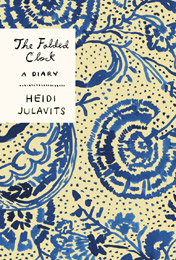 THE FOLDED CLOCK: A DIARY by Heidi Julavits (Bloomsbury Circus, £14.99)
THE FOLDED CLOCK: A DIARY by Heidi Julavits (Bloomsbury Circus, £14.99)When the American author Heidi Julavits rediscovered her childhood diaries, she was disappointed at what she read. Instead of early evidence of her creative gifts, she found ‘no imagination, no trace of a style, no wit, no personality’. The Folded Clock, by contrast, displays all of those things.
Although subtitled ‘A Diary’, the book moves fluidly backwards and forwards between months and years. That might sound confusing, if not a little irritating, but Julavits is a brilliant craftsman.
As for her topics, they are many, although certain themes recur: love, marriage, time and the writing life (Julavits is also married to an author). But it is the way she shapes herself to people and to situations that seems to interest her most, as when she takes her eight-year-old daughter and her daughter’s friend walking. ‘These are my last years to be interesting to them. Knowing this, I try to be so interesting that I might hold their attention longer than my natural expiration date allows.’ Intimate, insightful and very entertaining, this is a singular delight. Stephanie Cross
BOOK OF THE WEEK
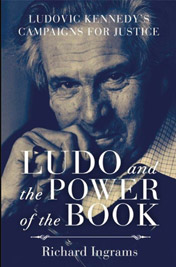 The blame game
The blame gameLUDO AND THE POWER OF THE BOOK: Ludovic Kennedy’s Campaigns for Justice by Richard Ingrams (Constable, £20)
One of the best-known investigative reporters and television interviewers of his generation, Sir Ludovic (Ludo) Kennedy believed that many innocent people are found guilty in British courts. His main theory was human nature looks for convenient scapegoats, such as Stephen Ward, to blame. This biography, by his friend Richard Ingrams, co-founder of Private Eye (and our esteemed cartoons editor), recounts four riveting murder cases – including the recently televised, gruesome 10 Rillington Place – for which innocent men (later championed by Ludo) were wrongly convicted and imprisoned, or executed in two of the cases examined. Largely thanks to Ludo’s tireless campaigning, hanging was eventually abolished in 1965.
Handsome, charming and courageous, Ludo was educated at Eton and Oxford. After a brief spell in the Navy, he turned to writing, ignoring evelyn waugh’s ‘unhelpful’ warning that he might have to resort to ‘road-sweeping’ to survive. In 1950, to the envy of his friends, Ludo married Moira Shearer, the ‘beautiful redheaded dancer’ and star of classic film The Red Shoes. It seems likely that Ludo’s lifelong campaign for justice was motivated by the trauma of seeing his beloved father unfairly court- martialled and ‘drummed out’ of the Navy.
Although it reveals little about Ludo’s private life and the man himself remains elusive, having recently done jury service, I was riveted by this elegantly written, thought-provoking book.
Rebecca Wallersteiner
COFFEE TABLE BOOK
REVOLUTION: RUSSIAN ART 1917- 1932 by various authors (Royal Academy Of Arts, £40)Accompanying the Royal Academy’s exhibition of the same title (until 17 April), and marking the centenary of the October revolution, this is a comprehensive study of art produced during the first 15 years of Soviet Russia. The period started with a flourish of optimism, which manifested itself with particular vibrancy in the visual arts. This later gave way to disillusion under the strictures of rationing and totalitarianism government propaganda – a transition also charted in the works showcased here.
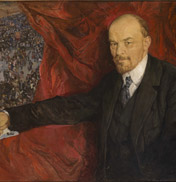
Paintings, photography, posters and objects are featured in more than 350 colour illustrations, including works by Chagall, Kandinsky and Rodchenko. The accompanying essays cover topics like the Soviet myth, eternal Russia and Stalin’s utopia. A fascinating insight into a rapidly evolving and epoch-defining art scene. Juanita Coulson
PAPERBACKS
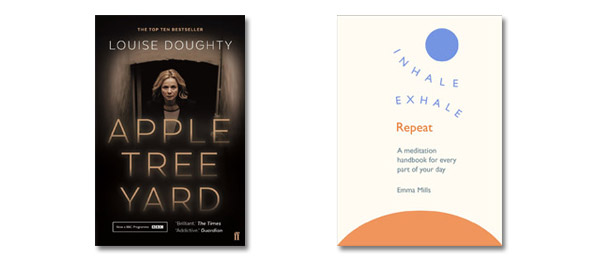
APPLE TREE YARD by Louise Doughty (Faber & Faber, £7.99)If you enjoyed the recent BBC adaptation, you will welcome this timely reissue of Doughty’s tale of middle-age adultery. Narrated in the first person, in the form of a woman’s letter to her lover, it follows eminently respectable scientist Dr Yvonne Carmichael, who is bored with her marriage to a philandering fellow academic. One day, she meets a handsome stranger who seems to devour her with his ‘wolf-like’ eyes – and she can’t resist him. ‘Who are you?’ she wonders, and her insecurity, the uncertainty and potential danger adds to his attraction. Although the al-fresco sex scenes are not entirely convincing, it’s refreshing to read about older people enjoying the wilder shores of love. entertaining, fast-paced and unsettling, this psychological thriller’s chilling ending should put anyone thinking of having an affair on the straight and narrow. RW
INHALE, EXHALE, REPEAT: A Meditation Handbook for Every Part of the Day by Emma Mills (Rider, £9.99)
Perfect for beginners and experienced meditators alike, this inspirational handbook is a valuable tool to help us navigate our frantic modern world with some sanity. It offers a fresh collection of simple strategies for every part of your day, starting the moment you wake up right through until bedtime. From paying yourself one genuine compliment a day, to tasting your food one bite at a time, these practices encourage a more accepting and peaceful way of being. A skilful psychologist, Mills guides the reader to recognise thoughts and feelings, and then to unfold or defuse them as necessary. It is a life- affirming, powerful read. So just inhale, exhale, and repeat – and let a sense of calm and focus transform your day. Patricia Merrick
THE LADY’S RECIPE READS
Health-enhancing recipes for body and mind – including bread and cake. By Juanita Coulson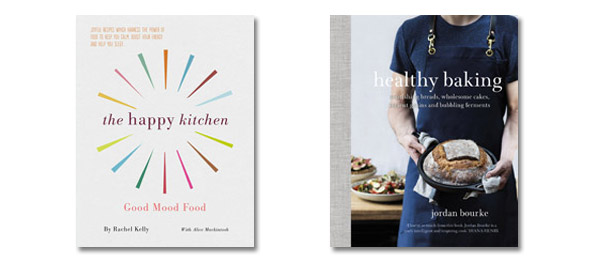
THE HAPPY KITCHEN: Good Mood Food by Rachel Kelly and Alice Mackintosh (Short Books, £14.99)
We all know about the impact of food on our bodies, but with research increasingly showing links between nutrition and mood, it’s a good time to consider our diet in relation to mental health and wellbeing. In a bid to stay well after episodes of depression, Kelly has worked with nutritional therapist Alice Mackintosh to develop recipes and eating plans that support energy levels, mood stability and a calm, clear mind. With enough science to inform but not baffle, delicious recipes and plenty of common sense, The Happy Kitchen is a great resource for anyone who is looking to support mental wellbeing through their diet.
HEALTHY BAKING: Nourishing Breads, Wholesome Cakes, Ancient Grains and Bubbling Ferments by Jordan Bourke (Orion, £20)
The award-winning food writer would like us to have our (healthy) cake and eat it. Her recipes for breads, savoury tarts, cakes and all things fermented eschew refined sugars and in many cases dairy and gluten – without compromising on indulgence, she claims. She also sneaks in another trend – quinoa and spelt. Sourdough breads feature prominently, but there are also recipes for yeasted loaves and wraps. Bourke is passionate about fermentation and the section on pickles and preserves is a highlight. But ‘sweet treats’ without sugar, butter or eggs have a sanctimonious, joyless feel that, to me, seems to defeat their purpose.
Tweet us your recipe reads @TheLadyMagazine using #ladyrecipereads


